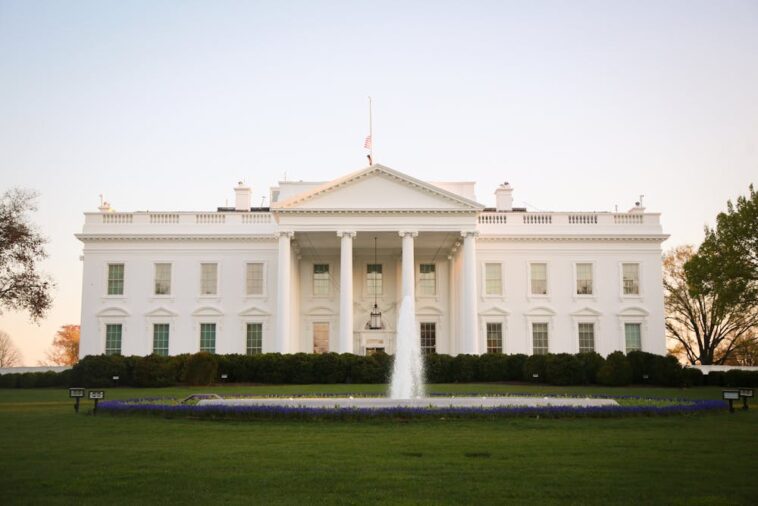A significant increase of right-wing populism has swept the United States, leading to an amplified scrutiny of our higher education institutions. There is no denying that universities, generally seen as liberal, expensive, and highbrow, have become a soft target. However, the battle between the Trump administration and Harvard goes beyond just political scrutiny, it marks a new era in testing the resilience and adaptability of our educational institutions. Through this, Trump proves his ability to not seek popularity but results, seeking improvement in not only Harvard but all 2,600 universities in the United States.
The confrontation between this administration and higher educational institutions may actually be an opportunity for the rest of the world, providing a silver lining to the situation. The European countries, for example, have been subtly but steadily attracting U.S.-based scientists and scholars, offering what they term a ‘scientific refuge’ in these times of political turmoil. Canada has also seen an influx of prominent American scholars. It’s as if the international community is co-opting a part of the U.S.’ intellectual resources.
In the mid-20th century, amidst a wave of oppressive regimes worldwide, America established itself as a sanctuary for anyone in pursuit of scientific freedom and democratic values, attracting some of the sharpest minds from Europe who sought to escape fascism and authoritarianism. These great minds helped shape the scientific innovations that pushed America to the forefront. Fast forward to today, where China could emerge as the primary beneficiary. Despite the challenges, Chinese universities continue undeterred, striving to recruit top scientific minds globally.
Are we witnessing a rerun of the 20th-century intellect migration, but with the roles reversed? Trump’s assertive policies might actually be contributing indirectly to China’s personal gain. On another front, Africa, the world’s youngest continent teeming with potential, reveals the success of China’s campaign. The growing number of Africans learning Mandarin and pursuing education in China, which is nearly double the number studying in America, hints at a generation seeking new opportunities.
The question remains: Could America risk its status as a scientific frontrunner to uphold its ideology? Interestingly, a precedent exists. During the Nazi era, Germany seemed to lose its edge in science and technology, and America swiftly moved in to fill the void. Each region brings a unique blend of resources, freedom, and a culture of risk-taking to the global stage. If America were to stumble, the impact would reverberate around the globe, potentially disrupting potential scientific breakthroughs.
The repercussions of such a scenario would not only disrupt the research ecosystem but also have considerable societal impacts. Researchers we spoke to from Harvard, whose funding was impacted, are working on vital projects such as tuberculosis studies and organ fabrication for disease studies. These disruptions could have serious ramifications as they may stall major scientific breakthroughs. Incredibly groundbreaking research may not see the light of day due to interrupted processes.
Furthermore, the impact felt on smaller, regional universities could be even more severe. These institutions are already suffering from reduced public funding and heavily rely on international students to offset costs. If the United States is continually seen as unwelcoming to international scholars, the effects could be catastrophic. The ripple effects would eventually reach, and potentially destabilise, the entire educational structure in the country, leading to longer-term collateral damage.
What must be understood is that this confrontation is not just legal; it is largely a function of political calculus. The Trump administration has boldly stepped into the fray, challenging not just Harvard but the very foundation of the current university system. This firm stance against the seemingly prevailing liberal ideologies could unintentionally turn out to be a victory for the Trump administration, and perhaps even set a trajectory for upcoming universities.
The effect of the Trump administration’s policies is now being seen in science, engineering, and mathematics. Researchers have begun to voice concerns over the long-term potential struggle faced by domestic talent in these fields. However, this is not a short-term problem, nor will it have a short-term solution. American universities could possibly see a shift in research as academics begin to consider options that offer both academic freedom and sustained funding.
In an ideal world, financial resources would not impede research and academia. Unfortunately, the reality may differ. The United States does indeed still hold a significant share of the soft power, particularly attractive to Indian scholars, despite suffering from a feeling of relative constraint. To paraphrase their sentiments, ‘Welcome to the world as we’ve known it for the past few years.’
Despite the United States’ struggle, China seems to be capitalizing on the opportunity to position itself as an international education hub, promoting a boost to their global reputation. It is undeniable that American universities have been a source of soft power globally and China appears eager to replicate this due to increasing impediments to foreign talent in America.
China’s ambitions, nevertheless, are also met with skepticism. Despite attracting Chinese-born scientists who have studied and acquired experience in America, it still bears the weight of its reputation for heavy restrictions and general suspicion toward foreigners. However, compared to the challenges posed by the Trump administration, China might seem like a more suitable alternative to many.
Watching the current situation unfold, young Africans on the verge of their academic careers might contemplate alternative education hubs. The thought of constantly facing visa rejections and dealing with high costs of education and living in the West may push many to consider other emerging educational pivots, like China. So as debates ensue in the United States, the bigger picture holds a poignant reminder that what’s at stake isn’t merely a set of individual academic careers but an entire global research ecosystem.

